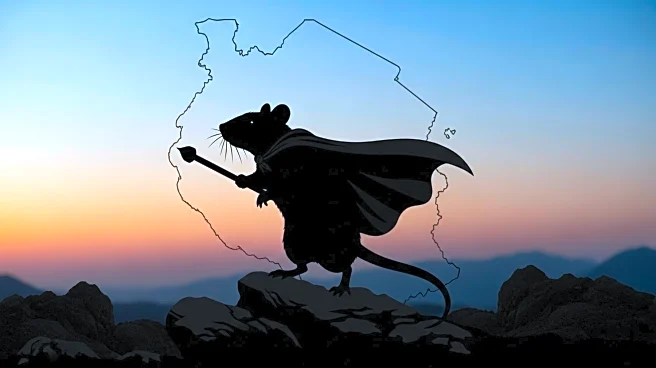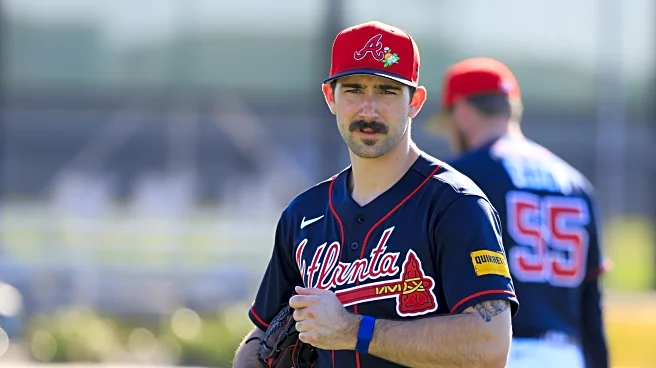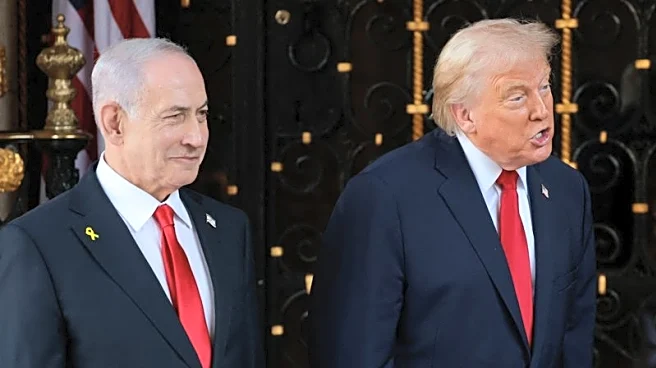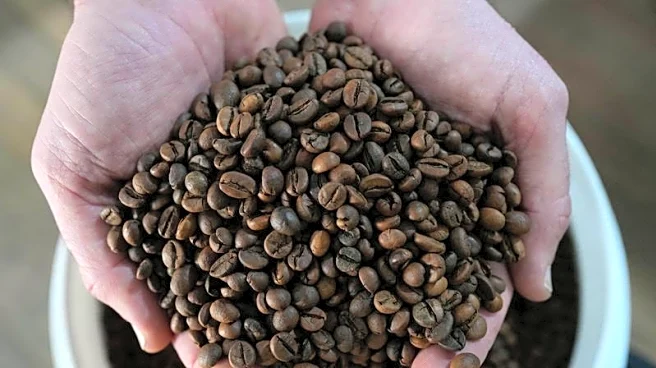What's Happening?
APOPO, a nonprofit organization based in Morogoro, Tanzania, has been training African giant pouched rats for over two decades to assist in lifesaving missions. These 'hero rats' are trained to detect explosives, tuberculosis, and even locate humans in disaster scenarios. The rats are equipped with backpacks to alert searchers when they find survivors in simulated earthquake rubble. They are also used to identify land mines, with successful deployments in countries like Angola and Cambodia, where they have helped clear over 50,000 land mines since 2014. Additionally, these rats are instrumental in detecting tuberculosis, a disease that remains a significant health challenge in sub-Saharan Africa.
Why It's Important?
The work of APOPO and its hero rats is crucial in regions heavily affected by land mines and tuberculosis. The rats provide a cost-effective and efficient method for detecting these dangers, potentially saving thousands of lives. In areas where access to advanced medical technology is limited, the rats offer a reliable alternative for tuberculosis detection, helping to prevent the spread of the disease. Their ability to identify false negatives in TB samples is particularly significant, as it ensures that infected individuals receive proper treatment, reducing transmission rates. The initiative highlights the innovative use of animals in addressing global health and safety challenges.
What's Next?
APOPO plans to continue expanding its operations, deploying trained rats to more regions in need, such as Turkey, where they are already working with partner organizations. The organization faces challenges in scaling its operations due to regulatory hurdles and skepticism from the wider health community. Despite these obstacles, APOPO remains committed to its mission, focusing on maximizing social impact by detecting every possible positive TB case. The organization aims to increase awareness and support for its unconventional yet effective methods, potentially influencing future health and safety strategies globally.
Beyond the Headlines
The use of rats in medical and safety applications raises ethical and regulatory questions. While APOPO's methods are not recognized as primary diagnostic tools by the World Health Organization, they serve as a secondary line of defense. The reliance on animal detection over traditional medical devices challenges conventional approaches, prompting discussions on the integration of alternative methods in global health strategies. The initiative also underscores the importance of innovation in addressing persistent health issues, particularly in resource-limited settings.











